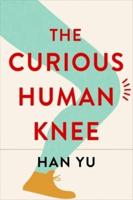Publisher's Synopsis
This important book uses selected molecules expressed on erythrocytes, lymphocytes, platelets and granulocytes to illustrate how genetic polymorphisms and variations in these molecules can affect their structure and function in mature human blood cells. The examples described tend to have a clinical association. Human blood group antigens and HLA antigens are classic examples of genetic polymorphism and they are important in blood transfusion and organ transplantation, respectively. In common with the blood group antigens, the polymorphic and variant antigens on platelets and granulocytes can be targets for antibodies in feto-maternal antigen incompatibility and transfusion reactions. Certain inherited haemolytic anaemias can be attributed to some of the polymorphic and variant forms of erythrocyte anion transport protein, spectrin, and glucose-6-phosphate dehydrogenase which exhibit abnormal structural or functional properties. Similarly, the study of cytokine gene polymorphism can provide a further understanding of the immune/inflammatory diseases and allogeneic transplantation.








